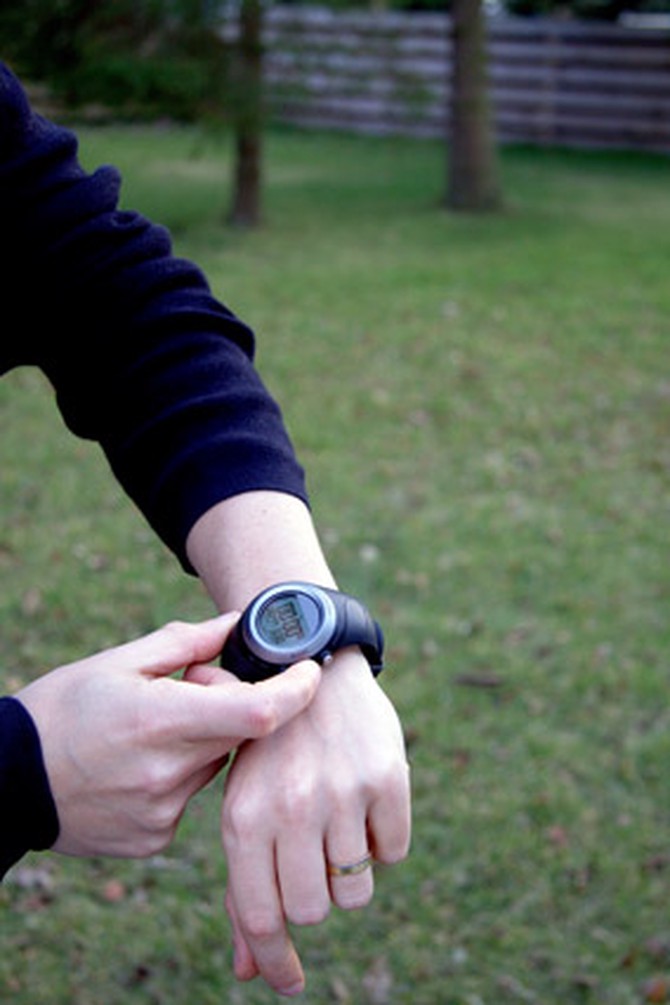5 Resolutions Bob Greene Says You Shouldn't Make This Year
Let the fitness pro show you which popular New Year's goals aren't worth setting and why.
By Corrie Pikul

Photo: Thinkstock
Don't Do a Juice Cleanse
Bob often hears people talking about a year-end cleanse as a way to make up for the health "sins" they committed during the past 12 months—an idea that makes no sense to him. He says depriving yourself of key nutrients (not to mention solid food) will set you up to binge later that week or month. Worse, he says going without protein for too long can cause the loss of muscle as well as fat, and an excessive decrease in calories can slow metabolism, too—which is exactly what you don't want to happen.
Do: Instead of giving up solid food for a week, commit to a 12-week program that involves small changes and reasonable substitutions that you'll barely miss.
Do: Instead of giving up solid food for a week, commit to a 12-week program that involves small changes and reasonable substitutions that you'll barely miss.

Photo: Thinkstock
Don't Take Just Any Multivitamin
While supplements can help us fill in some of the gaps in our daily diet, Bob's issue is that they're often sold as one-size-fits-all problem solvers. He uses women's multivitamins with folic acid as an example. "Folic acid at RDA levels is a must for women who are pregnant or planning to have children soon," says Bob, "But it's looking as if half that amount in a multivitamin might be right for women who are past that point in their lives—or for men." Some studies have even suggested a link between an excess of folic acid and cancer.
Do: Take supplements created for your age, health needs and lifestyle, and check the labels. With a few exceptions (such as vitamins C, E and B12), Bob recommends that most daily value levels shouldn't exceed 100 percent (his own line of multis for adults over 50 contains folic acid at 50 percent of the RDA).
Do: Take supplements created for your age, health needs and lifestyle, and check the labels. With a few exceptions (such as vitamins C, E and B12), Bob recommends that most daily value levels shouldn't exceed 100 percent (his own line of multis for adults over 50 contains folic acid at 50 percent of the RDA).

Photo: Thinkstock
Don't Vow to Start Working Out for at Least an Hour Every Morning
It takes planning and organization to squeeze a full extra hour of exercise into your morning. You'll be waking up earlier, so you'll probably need to change your bedtime. And this is January, one of the coldest, harshest months of the year. Totally doable if you've already been getting up early, but a jarring switch if this is new to you. After just a week of oversnoozing, you may feel so defeated, says Bob, that you won't bother to give it another try until May.
Do: While Bob prefers morning workouts because they tend to be the easiest to stick to (besides sleep, there's not much else competing for your time), he recognizes that exercise in the a.m. doesn't work for everyone. Find the time of day that works best for you and commit to a regular schedule for one solid month.
Do: While Bob prefers morning workouts because they tend to be the easiest to stick to (besides sleep, there's not much else competing for your time), he recognizes that exercise in the a.m. doesn't work for everyone. Find the time of day that works best for you and commit to a regular schedule for one solid month.

Photo: Thinkstock
Don't Quit Your Favorite Foods Cold Turkey
When thinking about their eating habits, many people see the start of the New Year as the end to the fun, excitement and satisfaction of the previous year, says Bob. But a healthy lifestyle doesn't need to involve deprivation. "If your goal is to lose weight, don't restrict calories to the point of near-constant hunger," says Bob. There are other, more effective ways to diet.
Do: Cut back enough that you slowly begin to shed pounds but aren't walking around hungry, says Bob, and accelerate the calorie burn with regular exercise.
Do: Cut back enough that you slowly begin to shed pounds but aren't walking around hungry, says Bob, and accelerate the calorie burn with regular exercise.

Photo: Thinkstock
Don't Resolve to Run a Marathon in the Spring If You Didn't Run a 5K in the Fall
Spring races are great motivators for cooped-up runners and can be the perfect reason to get outside when the weather is less than spectacular. But for those who are just starting a fitness plan (and have never raced before), taking on too much too soon often leads to injury.
Do: "Set a reasonable goal for your skill level and take small steps toward achieving it each day," says Bob. This means finding a training plan (here's one that will help you finish a 5K in six weeks) and maybe joining a running group. You'll dramatically increase your chances of not only crossing the finish line but also wanting to do it again.
Keep Reading
Bob Green's five crucial steps for maintaining your weight and your life
Do: "Set a reasonable goal for your skill level and take small steps toward achieving it each day," says Bob. This means finding a training plan (here's one that will help you finish a 5K in six weeks) and maybe joining a running group. You'll dramatically increase your chances of not only crossing the finish line but also wanting to do it again.
Keep Reading
Bob Green's five crucial steps for maintaining your weight and your life
Published 12/29/2011

